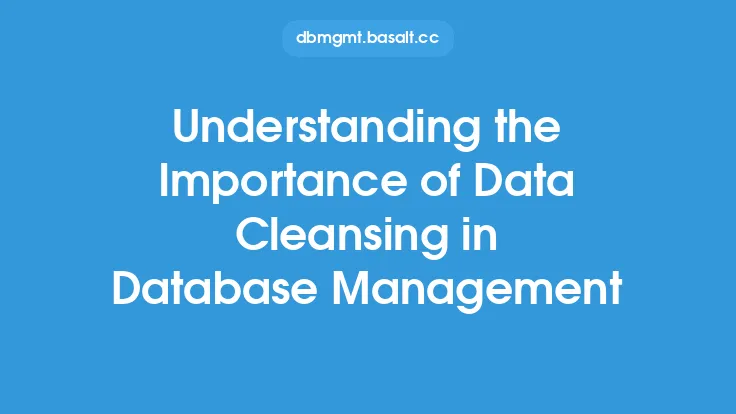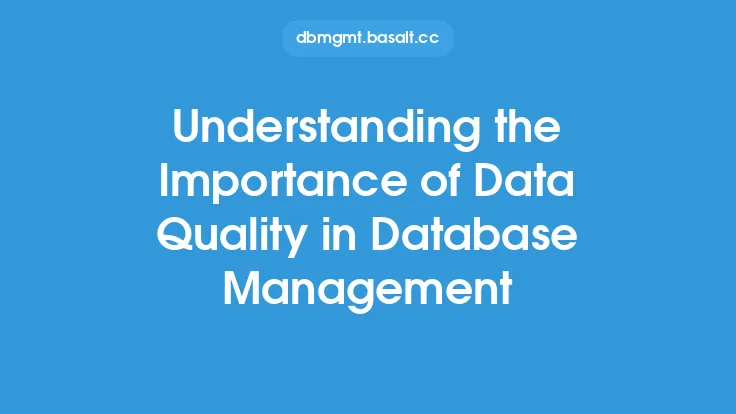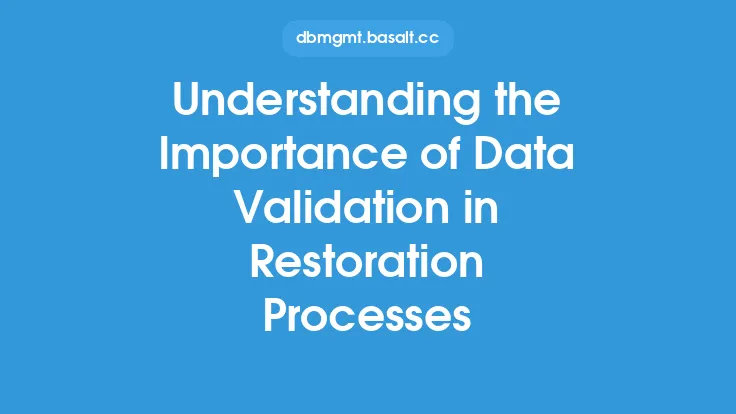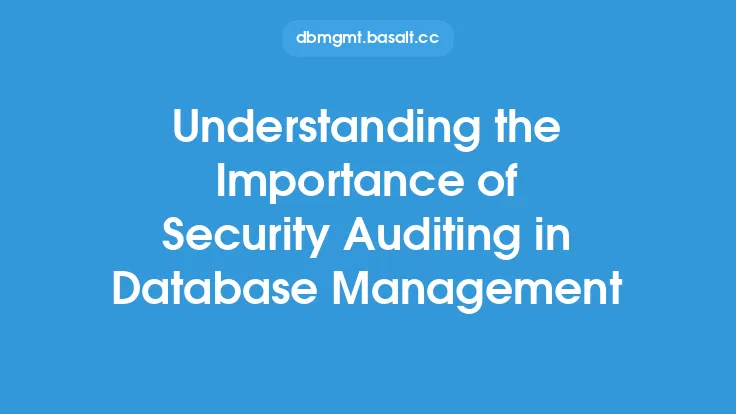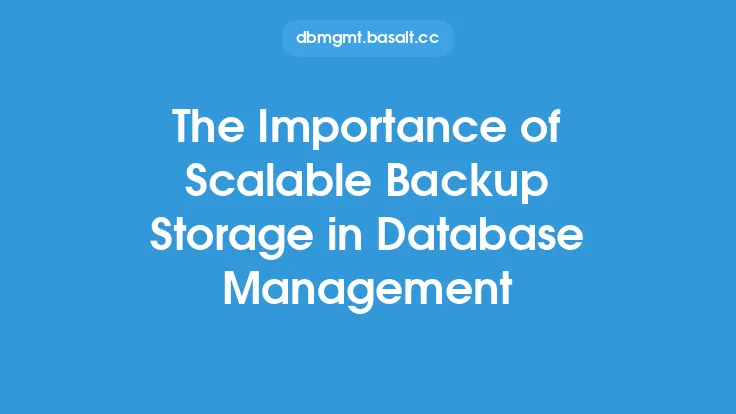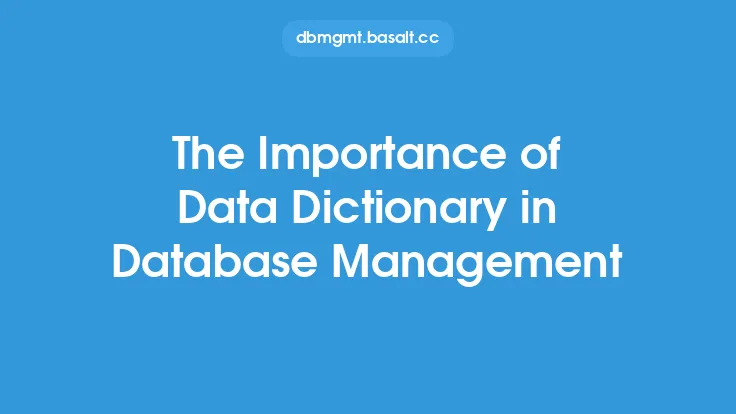Data validation is a critical component of database management that ensures the accuracy, completeness, and consistency of data stored in a database. It involves checking data for errors, inconsistencies, and conformity to predefined rules and formats, thereby preventing incorrect or misleading data from entering the database. In this article, we will delve into the importance of data validation in database management, its benefits, and the various techniques used to validate data.
Introduction to Data Validation
Data validation is an essential process that helps maintain the integrity of a database by ensuring that the data stored in it is reliable, accurate, and consistent. It involves verifying that the data entered into the database conforms to the defined rules, formats, and constraints. Data validation can be performed at various levels, including at the point of data entry, during data processing, or when data is retrieved from the database. The primary goal of data validation is to prevent errors, inconsistencies, and inaccuracies from entering the database, which can have serious consequences, such as incorrect analysis, poor decision-making, and compromised data security.
Benefits of Data Validation
Data validation offers numerous benefits, including improved data accuracy, completeness, and consistency. By validating data, organizations can ensure that their database contains reliable and trustworthy information, which is essential for making informed decisions. Data validation also helps prevent data corruption, which can occur when incorrect or inconsistent data is entered into the database. Additionally, data validation can help improve data security by preventing unauthorized access to sensitive data. Furthermore, data validation can help reduce errors and inconsistencies, which can save time and resources in the long run.
Types of Data Validation
There are several types of data validation, including format validation, range validation, and constraint validation. Format validation involves checking the format of the data to ensure it conforms to the defined rules and formats. For example, checking that a date field is in the correct format (e.g., MM/DD/YYYY). Range validation involves checking that the data falls within a specified range or set of values. For example, checking that a salary field is within a specified range (e.g., $40,000 to $100,000). Constraint validation involves checking that the data conforms to specific constraints, such as uniqueness, primary key, or foreign key constraints.
Data Validation Techniques
There are several data validation techniques used to validate data, including manual validation, automated validation, and batch validation. Manual validation involves manually checking data for errors and inconsistencies, which can be time-consuming and prone to errors. Automated validation involves using software or programming languages to validate data, which can be more efficient and accurate. Batch validation involves validating large volumes of data in batches, which can be useful for validating data that is imported from external sources.
Data Validation Rules
Data validation rules are predefined rules that specify the conditions under which data is considered valid. These rules can be based on various factors, such as data type, format, range, and constraints. Data validation rules can be implemented using various techniques, such as check constraints, triggers, and stored procedures. Check constraints involve defining rules that are checked when data is inserted or updated in the database. Triggers involve defining rules that are executed automatically when specific events occur, such as when data is inserted or updated. Stored procedures involve defining rules that are executed when specific procedures are called.
Data Validation and Database Design
Data validation is an essential component of database design, as it helps ensure that the database contains accurate, complete, and consistent data. When designing a database, it is essential to consider data validation rules and constraints to ensure that the data stored in the database is reliable and trustworthy. This involves defining data types, formats, and constraints for each field, as well as implementing data validation rules and triggers to ensure that data conforms to these rules.
Best Practices for Data Validation
There are several best practices for data validation, including defining clear and concise data validation rules, implementing automated data validation, and testing data validation rules thoroughly. It is also essential to document data validation rules and procedures to ensure that they are understood and followed by all stakeholders. Additionally, it is essential to regularly review and update data validation rules to ensure that they remain relevant and effective.
Common Data Validation Challenges
There are several common data validation challenges, including handling missing or null data, handling data inconsistencies, and handling data that is outside the defined range or format. It is essential to have strategies in place to handle these challenges, such as using default values for missing data or implementing data cleansing procedures to handle data inconsistencies.
Conclusion
In conclusion, data validation is a critical component of database management that ensures the accuracy, completeness, and consistency of data stored in a database. It involves checking data for errors, inconsistencies, and conformity to predefined rules and formats, thereby preventing incorrect or misleading data from entering the database. By understanding the importance of data validation, organizations can ensure that their database contains reliable and trustworthy information, which is essential for making informed decisions. By implementing data validation rules and techniques, organizations can improve data accuracy, completeness, and consistency, and reduce errors and inconsistencies.
